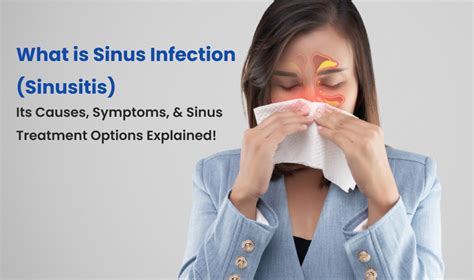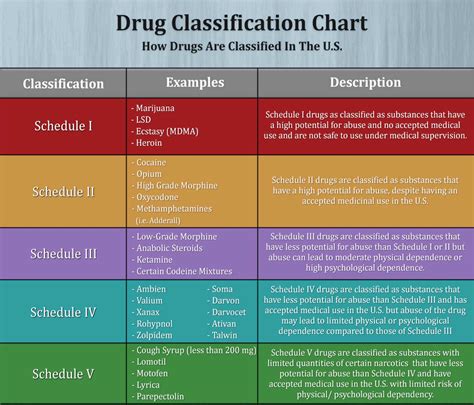Intro
Sinus infections, also known as sinusitis, are a common health issue affecting millions of people worldwide. The condition occurs when the sinuses, which are air-filled cavities in the skull, become inflamed or infected. This inflammation can cause a range of uncomfortable symptoms, including nasal congestion, facial pain, headaches, and difficulty breathing. Fortunately, there are various sinus infection medications available to help alleviate these symptoms and treat the underlying infection.
The importance of seeking medical attention for sinus infections cannot be overstated. If left untreated, sinus infections can lead to more severe complications, such as meningitis, brain abscess, or osteomyelitis. Moreover, sinus infections can significantly impact an individual's quality of life, making everyday activities a challenge. Therefore, it is essential to understand the available treatment options and consult a healthcare professional for proper diagnosis and guidance.
Sinus infections can be caused by a variety of factors, including viral or bacterial infections, allergies, and environmental irritants. The treatment approach often depends on the underlying cause of the infection. In some cases, sinus infections may resolve on their own with self-care measures, such as using a humidifier, saline nasal sprays, or over-the-counter pain relievers. However, in more severe cases, prescription medications or even surgery may be necessary to treat the infection and prevent long-term damage.
Sinus Infection Treatment Options

Sinus infection treatment options vary depending on the severity and cause of the infection. Over-the-counter medications, such as pain relievers and decongestants, can help alleviate symptoms. However, in more severe cases, prescription medications, such as antibiotics or corticosteroids, may be necessary to treat the underlying infection. In some cases, surgery may be required to drain the sinuses or remove any blockages.
Over-the-Counter Medications
Over-the-counter medications can provide relief from sinus infection symptoms. These medications include: * Pain relievers, such as acetaminophen or ibuprofen, to reduce pain and fever * Decongestants, such as pseudoephedrine or phenylephrine, to reduce nasal congestion * Expectorants, such as guaifenesin, to thin and loosen mucus * Saline nasal sprays or drops to moisturize the nasal passages and promote drainagePrescription Medications

Prescription medications may be necessary to treat more severe sinus infections. These medications include:
- Antibiotics, such as amoxicillin or azithromycin, to treat bacterial infections
- Corticosteroids, such as prednisone or fluticasone, to reduce inflammation and swelling
- Antihistamines, such as loratadine or diphenhydramine, to treat allergic reactions
- Nasal corticosteroids, such as fluticasone or triamcinolone, to reduce inflammation and congestion
Antibiotics
Antibiotics are commonly prescribed to treat bacterial sinus infections. However, it is essential to use antibiotics responsibly and only when necessary, as overuse can lead to antibiotic resistance. The most commonly prescribed antibiotics for sinus infections include: * Amoxicillin * Azithromycin * Clarithromycin * Cefaclor * CefuroximeSurgical Options

In some cases, surgical intervention may be necessary to treat sinus infections. Surgical options include:
- Functional endoscopic sinus surgery (FESS) to remove blockages and promote drainage
- Balloon sinuplasty to dilate the sinuses and improve drainage
- Turbinate reduction to reduce the size of the turbinate bones and improve breathing
- Septoplasty to correct a deviated septum and improve breathing
Self-Care Measures
Self-care measures can help alleviate sinus infection symptoms and promote recovery. These measures include: * Using a humidifier to add moisture to the air * Drinking plenty of fluids to thin and loosen mucus * Applying warm compresses to the face to reduce pain and congestion * Elevating the head while sleeping to reduce congestion and promote drainage * Avoiding allergens and irritants, such as tobacco smoke or strong chemicalsPreventing Sinus Infections

Preventing sinus infections requires a combination of good hygiene practices, a healthy lifestyle, and environmental modifications. Some tips to help prevent sinus infections include:
- Practicing good hygiene, such as washing hands frequently and avoiding close contact with people who have colds or flu
- Getting vaccinated against the flu and other respiratory illnesses
- Avoiding allergens and irritants, such as tobacco smoke or strong chemicals
- Using a saline nasal spray or rinse to moisturize the nasal passages and promote drainage
- Staying hydrated by drinking plenty of fluids
Complications of Sinus Infections
If left untreated, sinus infections can lead to more severe complications, such as: * Meningitis, an infection of the membranes surrounding the brain and spinal cord * Brain abscess, a collection of pus in the brain * Osteomyelitis, an infection of the bones * Orbital cellulitis, an infection of the tissues surrounding the eye * Cavernous sinus thrombosis, a blood clot in the cavernous sinusConclusion and Future Directions

In conclusion, sinus infections are a common health issue that can have a significant impact on an individual's quality of life. Understanding the available treatment options and taking steps to prevent sinus infections can help alleviate symptoms and promote recovery. Future research should focus on developing more effective treatments and prevention strategies, as well as improving our understanding of the underlying causes of sinus infections.
Final Thoughts
Sinus infections are a treatable condition, and with the right combination of self-care measures, medications, and surgical interventions, individuals can find relief from symptoms and prevent long-term damage. By staying informed and taking proactive steps to prevent sinus infections, individuals can reduce their risk of developing this condition and improve their overall health and well-being.What are the symptoms of a sinus infection?
+Symptoms of a sinus infection include nasal congestion, facial pain, headaches, difficulty breathing, and thick, yellow or green nasal discharge.
How are sinus infections diagnosed?
+Sinus infections are typically diagnosed based on a combination of physical examination, medical history, and diagnostic tests, such as imaging studies or nasal endoscopy.
Can sinus infections be prevented?
+Yes, sinus infections can be prevented by practicing good hygiene, getting vaccinated against the flu and other respiratory illnesses, avoiding allergens and irritants, and using a saline nasal spray or rinse to moisturize the nasal passages and promote drainage.
What are the complications of untreated sinus infections?
+Untreated sinus infections can lead to more severe complications, such as meningitis, brain abscess, osteomyelitis, orbital cellulitis, and cavernous sinus thrombosis.
How long do sinus infections last?
+The duration of a sinus infection can vary depending on the severity of the infection and the effectiveness of treatment. Acute sinus infections typically last 7-10 days, while chronic sinus infections can last 12 weeks or longer.
We hope this article has provided you with a comprehensive understanding of sinus infections, their symptoms, treatment options, and prevention strategies. If you have any further questions or concerns, please do not hesitate to reach out to a healthcare professional. Share this article with friends and family to help spread awareness about sinus infections and promote better health and well-being.
